China’s financing and investment spread across 61 BRI countries in 2023 (up...
2024-02-27 30 英文报告下载
In other words, the Truman administration did not view the Republic of Korea or Taiwan within its security perimeter. Part of this decision owed to America’s preoccupation at the time with the security situation in Europe. Chiang Kai-shek’s supporters lobbied the Truman administration to fortify Taiwan against an expected attack by the People’s Republic of China. Washington and Taipei expected that Chinese Communist forces would launch an assault on Taiwan to seek to end the Chinese Civil War on Beijing’s preferred terms. After North Korea’s surprise invasion of South Korea in June, Washington immediately reversed its previous declaratory posture and moved its Seventh Fleet toward the Taiwan Strait to block any attempt by Chinese Communist forces to seize Taiwan. America’s intervention effectively froze in place the status quo created by the Chinese Civil War, a stalemate that remains to this day.
To many in Washington, the Korean War linked the security of Taiwan and Korea. They both became viewed as critical battlegrounds for staunching the spread of communism in Asia. The United States fought on the Korean Peninsula to reverse North Korean gains. It simultaneously began to restore and increase military support to the ROC military on Taiwan. In the decades that followed, the ROC and the ROK developed close relations. They exchanged regular high-level visits, deepened economic cooperation, and strengthened military coordination. “As part of their anti-Communist solidarity,” Chaewon Lee and Adam P. Liff write, “neither recognized the PRC or the DPRK as a legitimate government” through the end of the Cold War.2 On the economic front, they both followed similar state-backed, export-oriented growth models.

标签: 英文报告下载
相关文章
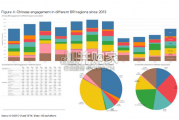
China’s financing and investment spread across 61 BRI countries in 2023 (up...
2024-02-27 30 英文报告下载
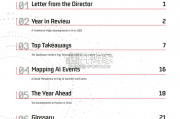
Though the risk of AI leading to catastrophe or human extinction had...
2024-02-26 50 英文报告下载
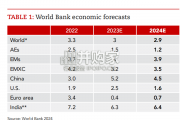
Focusing on the prospects for 2024, global growth is likely to come i...
2024-02-21 95 英文报告下载
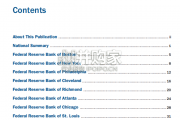
Economic activity declined slightly on average, employment was roughly flat...
2024-02-07 66 英文报告下载
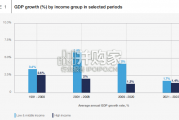
Economic growth can be defned as an increase in the quantity or quali...
2024-02-06 82 英文报告下载
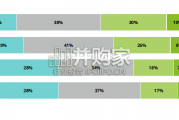
In this initial quarterly survey, 41% of leaders reported their organizatio...
2024-02-05 66 英文报告下载
最新留言